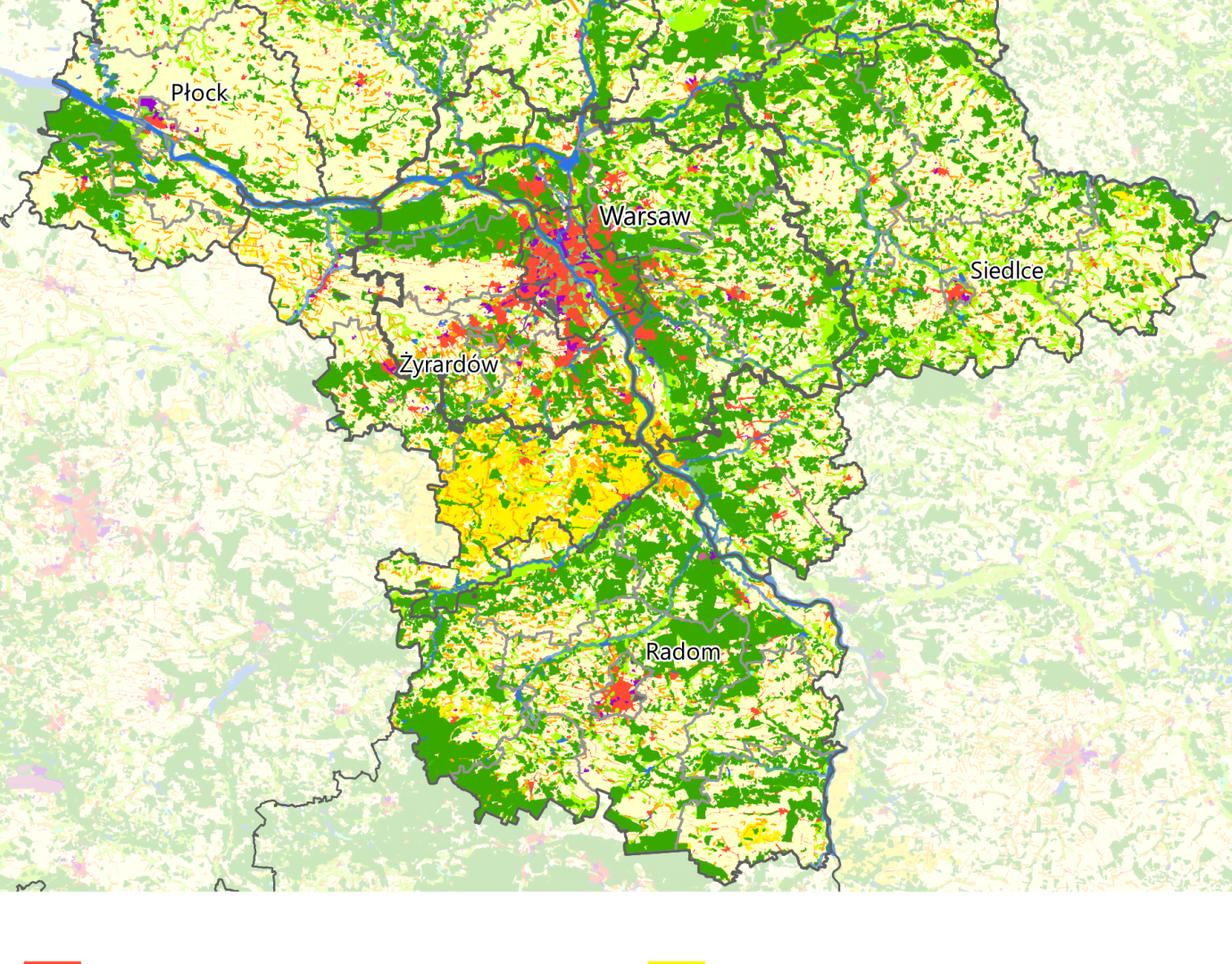
Mazovia Region (PL)
Mazovia is a province in Poland with the metropolitan area of Warsaw at its centre. The region is home to 5.5 million residents in an area of 36 thousand km2.
Mazovia is a region of beautiful river valleys, the dynamic capital city and 5 subregional cities, as well as fields and orchards. In the last two decades it has been one of the most rapidly developing regions in the EU.
Focus area and Challenges
The Mazovian region faces significant land use challenges, including the absence of a uniform spatial planning system, which limits possibilities for new investments, and restricted zoning coverage, enabling unregulated construction outside of the spatial planning system. There is also a lack of legally binding metropolitan spatial planning documents.
The area has also experienced rapid growth over the last decade, which is accompanied by rapidly progressing (sub)urbanisation. At the same time, agriculture plays an important role in the region’s economy as many the region’s inhabitants live in rural areas. Fast economic growth has resulted in multiple undesirable effects such as rising land prices, negative demographic trends in rural areas, landscape degradation and urban pressure on areas of natural beauty. Addressing these challenges is crucial for effective and sustainable land use in the region.

Objectives
Through the PLUS Change project, the Mazovian region seeks to analyse land-use changes in functional urban areas over the past 12-20 years and promote the creation of green belts and corridors through close cooperation with local authorities. By collaborating with other project partners, the region can learn from their experiences in addressing similar land use challenges.
The formation of an association by local governments in the Warsaw Metropolitan Area to leverage EU funds for 2021-2027 presents an opportunity for transformative actions. Furthermore, the preparation of new legal provisions regarding land-use planning opens avenues for positive changes. By seizing these opportunities, the region aspires to foster more sustainable development practices.


